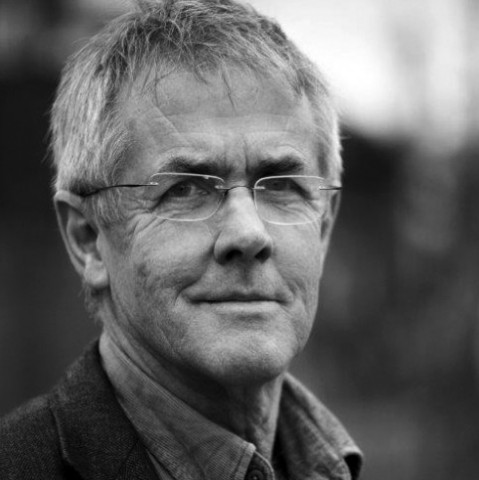News

News >
Read an extract: Watsonia
Read ‘Leaders and Dung Beetles’, an essay from Watsonia, the definitive collection of Don Watson’s writing life. Originally published in The Monthly.
My brother thinks he’s a chicken – we’d try to talk him out of it, but we need the eggs.
—Groucho Marx
In 1982 John Cain led the Labor Party to the Victorian government benches for the first time in a generation. The state branch, a longrunning fiasco, took the first steps towards becoming something like Victoria’s natural party of government. Victoria reemerged as the nation’s most progressive state, and Melbourne became a much buzzier organism – not New York, but open, spirited and alive. If Melbourne is now regularly judged the world’s ‘most liveable’ city, and political conservatives think Victoria is Australia’s Massachusetts, much of the credit must go to John Cain.
As the obituaries since his death in December have uniformly declared, Cain was a man of stern integrity and selfrestraint. In the era of the long lunch, the premier occasionally took time off to eat a pie in the Fitzroy Gardens café. On aeroplanes, he walked through the business class rows of federal public servants and corporate honchos relishing their newly deregulated environment, to his seat in economy at the back. When a Brisbane hotel receptionist told him he and his wife Nancye were in the executive suite, he demanded a downgrade. ‘We’ll have the same kind of room as him’, he said, indicating me.
These were the days when some Labor leaders were in love with money and the newly moneyed. Cain could not hide his distaste. He kept his distance from the spivs, banned professional lobbyists, and declared that so long as he was premier there would be no casinos to play host to criminals and clean up the proceeds of crime, and no poker machines either.
As if moral principles were incompatible with laughter, portraits of Cain almost always ignore his sense of humour – he did fund the first Melbourne Comedy Festival – and understate the fillip he gave the good life. Had Jeff Kennett decriminalised prostitution and transformed Melbourne by reforming the licensing and retail trading laws, it would have been put down to his neoliberal philosophy. Cain did it because it was sound economics and enlarged society. He abolished offensive social barriers to women less because they offended feminist opinion and more because sporting clubs excluding half the population from the public land they occupied outraged democratic standards.
In a similar vein, Cain’s insistence on strictly separating private interest from public duty (puzzling as that idea now seems), and his loathing for all forms of sleaze (also puzzling), should not be allowed to obscure the other principles he exercised as premier: his stress on policy development; his effort to create an independent and answerable public service; his openness to ideas; his sturdy belief in Labor’s duty to the commons and the people.
He won three elections for Labor; then, undermined by duckshovers and deadbeats, incompetents, cowboys and people besotted with power, sectional interest and the dogmas of economic rationalism, he resigned. Most of the worst blows he suffered were meted out, directly or indirectly, by members of his own party. And within three weeks of his resignation it was his own party that opened the way for a casino.
In the three decades after he resigned, John Cain all but vanished from the public mind. People old enough to remember his craggy face and signature overcoat might have recognised him when the tennis was on at Melbourne Park, the precinct for which he was preeminently responsible, or around the State Library that he nurtured and defended, or at the University of Melbourne, where he was a visiting fellow and critic of its corporate philosophy.
He was a man of the people, but no populist. He never sought the spotlight, never became a media blowhard, never a regular at meritocratic gatherings with all those AO epicorms of the bunyip aristocracy sprouting from their lapels. He was never in the honours lists – when they were offered he turned them down.
Even in his own day, some thought Cain’s rigorous observance of propriety a little quaint. Now it would be an object of wonder. Where would the government hide Angus Taylor or George Christensen? Barnaby Joyce? Where would they hide the Nationals – as a bloc? Or the politicians and their advisers who step unblushingly from their ministerial office to the fossilfuel corporations, arms manufacturers, media organisations and other outfits to whom, as our elected representatives, they granted government contracts or other favours? Or dozens of party donors, staffers, MPs and failed candidates appointed to $400,000-a-year positions on the Administrative Appeals Tribunal? Or the minister and her advisers who dispersed $100 million in sports grants to marginal electorates, and sizeable chunks of it to such necessitous outfits as Perth’s Applecross Tennis Club and the Royal Adelaide Golf Club? And then there’s Crown Casino. Our polity would be unrecognisable. Where would the prime minister hide the former coal industry executives presently residing in his office, the coal industry donors to his party, the coal industry connections in his ministry?
For that matter, imagine if even a few of John Cain’s principles had prevailed against the ideological juggernaut that cast him as a Keynesian relic. Maybe a more sceptical view of markets, a more selective approach to selling public enterprises, might have caused us to shy at the corporate state. We might have seen less government money being shovelled the way of crooked education and healthcare providers; less water being sold for no decent purpose; fewer politicians being bought; more communities intact. More policy – including climate policy – less marketing.
The belated tributes after he died were heartening testimony to Cain’s character and accomplishments. Yet to be reminded of his sterling qualities was also to be reminded of our curious inability to elect people like him.
Consider our last three prime ministers – last four, if you’re inclined, but it’s hardly fair. Alone or collectively, for devotion to public service, courageous leadership, strenuous commitment to good policy and measurable achievement, how do they compare to Cain?
Tony Abbott was a real trick of a PM, but who can remember a single useful thing he did, any profit the country got for electing him to the job? The second of the trio, manically dogged by the first, never overcame either his reactionary opponents or the impression that he loved his high office too much to risk it in a decisive battle with the enemy. And now, before we have time to decide if that judgement is fair, or to weigh the consequences for the country, he’s back on Q&A, bobbing along in the same stream of consciousness, blithely singing of himself and lesser mortals, beguiling some, maybe, but leaving others trying to mortar his narrative to what they can recall – and wondering if their minds are going. He was the prime minister for a while, wasn’t he? Yes, of course, after whatshisname, the weirdo on the bike.
And now there’s Morrison from marketing: plodding in the ashes, searching for words or gestures to show, despite Hawaii, that he understands. But he’s an adman: the purpose of his professional existence has never been to find meaning or confront it, but to invent it. The meaning of a grieving woman and weary firefighter declining to take his proffered hand, for instance. He takes their hands anyway, not to hold and comfort them, but to compel them to comfort him. He turns his back and looks for a more likely customer. That’s the trouble with these disaster scenarios: even the most rudimentary market segmentation goes out the window. No sociographics. If a bloke’s got no idea what kind of customer he’s targeting, what’s he meant to say?
He says he understands his absence has caused us some ‘anxiety’. Not offence, bafflement or antipathy – anxiety. On social media he releases a select résumé of his government’s good works in the form of a Liberal Party advertisement set to a musical pulse, a jingle. And he tells the Australian cricket team that when they’re out there batting and bowling they’re doing something that’s like fighting fires, or the firefighters are doing something that’s like batting and bowling, or, whatever, the two activities are related.
Whether they’re started by lightning storms or whatever the cause may be, our firefighters and all of those have come behind them to support them, whether they’re volunteering on the front line or behind the scenes in a great volunteer effort, it is something that will happen against the backdrop of this test match.
If no other good comes out of the emergency, in future there will be no excuse for thinking marketing is some kind of science.
At some point in any interview with the prime minister one is liable to be reminded of a dung beetle: he starts with nothing much at all and by unstoppable singleminded exertion he pushes it through every interrogative thicket and every hurdle of logic and evidence until he’s created a ball of bullshit several times his own size. Forget what he’s said at other times, what stunts he’s pulled, ignore the fudges, ask not where consistency, truth and substance lie: he will drown out his doubters in a storm of platitudes and shameless demotic saws. What he says may be off the point, beside the point or have no point at all, but sooner or later it becomes the point.
Some of us recall the PM expressing his concern that Greta Thunberg’s warnings about climate change might unnecessarily alarm and depress young people. The young, he said, are entitled to imagine a happier future. Just how he reconciled this admirable concern with his church’s belief in the (very fiery) End Times that await all creatures young and old, he never explained. But no matter. Despite so many indications to the contrary, he says he has never denied the reality of climate change and its effects, including the effects on the past several months of bushfires, in the course of which, we may presume, many young people found it impossible not to imagine an alarming and depressing future.
Yet it turns out the government has been busily reducing emissions from the getgo, even back when Abbott was running the show, and when Scott Morrison went into parliament with a lump of coal. The European Union is dedicating a quarter of its budget to tackling climate change. BlackRock, the world’s biggest funds manager, is getting out of thermal coal. The Bank for International Settlements is telling the RBA that central banks might have to be ‘climate rescuers of last resort’ and ‘buy a large set of carbonintensive assets’. For his part, our prime minister will allow our emissions reduction targets to ‘evolve’. That’s the plan. That and improving our ‘resilience and adaptation’. What’s more, in a sort of customercare commitment, he’s sworn to ‘keep us safe’. All, of course, ‘without a carbon tax, without putting up electricity prices and without shutting down traditional industries upon which regional Australians depend for their very livelihood’.
Now, we might not see in his strategy an answer to the threat our planet faces. But we’re not in marketing, he is.
And whatever the record may show, he had a perfectly amiable conversation with the lady in Cobargo. And that was not thermal coal he took into the House. It was nonthermal. That’s if it was coal at all, and not just a rock one of his advisers painted.
Loyal customers that we are, why wouldn’t we believe him?
The Monthly, February 2020
Watsonia is in bookstores on 17 November. Pre-order now, and join us for online events with Don at Readings, Avid Reader and Roaring Stories.
Share this post
About the author
Don Watson is the author of many acclaimed books, including Caledonia Australis, Recollections of a Bleeding Heart, American Journeys, The Bush, Watsonia and The Story of Australia.
More about Don Watson




